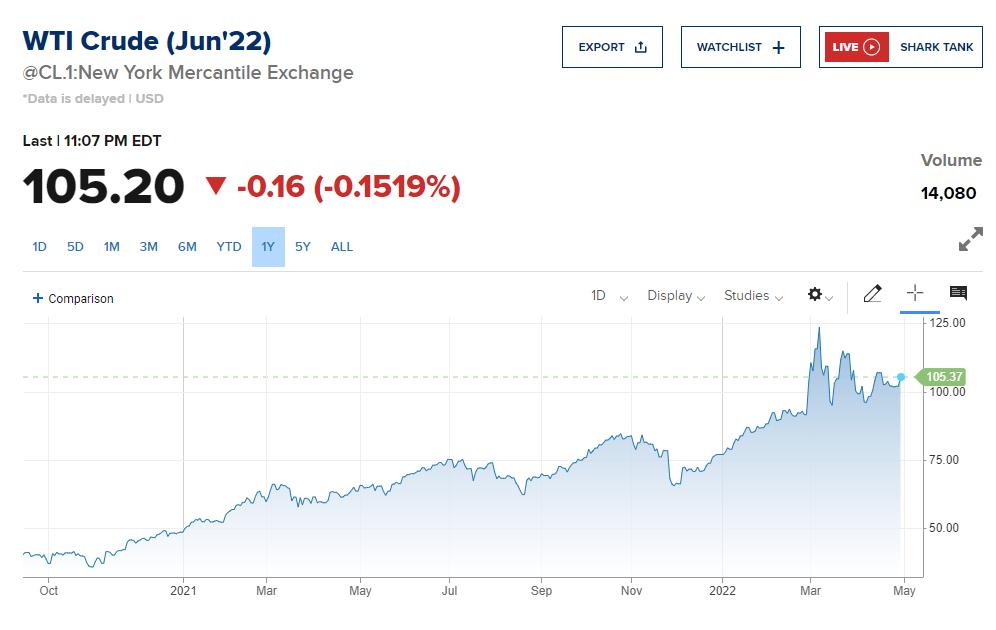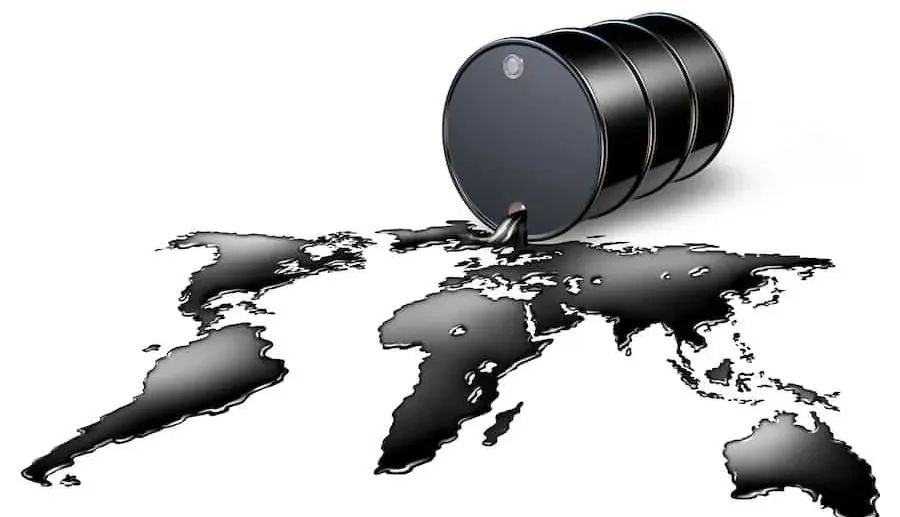So far, the price of Brent oil has climbed above $100 per barrel and prices for WTI (West Texas Intermediate) oil have hit new highs in recent decades. As a basic commodity, crude oil has put great pressure on inflation as its prices rise sharply.

Former Fed chairman Ben Bernanke points out that the impact of rising oil prices on monetary policy depends on the initial state of the economy, and it is necessary to have powerful monetary tightening measures if inflation is close to the upper limit of the tolerable range or there is a risk of further increases.
The current inflation is well above the target value, and the inflation in March was mainly driven by a sharp rise in energy prices. Under such circumstances, persistently high oil prices are likely to delay the arrival of inflation inflection points, and the Fed will also take the inflation brought about by high oil prices more seriously or even tighten monetary policy further.
So will high oil prices eventually lead to high inflation or recession? This is not always the case from historical experience.
How historically high oil prices have fallen?
The three oil crises (years of 1974, 1981, and 1991) were mainly caused by the oil market turmoil and embargo sanctions triggered by the outbreak of war, which led to the rise of oil prices. Against the backdrop of a huge economic blow, oil-producing countries and international energy agencies have taken countermeasures actively and played regulatory roles, which has finally eased the pressure on oil prices and stabilized the oil supply.
In 2000, the internet bubble dragged the global economy into recession. In 1998, oil prices fell below $10 due to oversupply. Thus, OPEC had to agree to cut production; On the other hand, after the Asian financial crisis, the global economy recovered, oil entered the peak demand season, and the imbalance in supply drove up oil prices. Then the internet bubble burst, and oil prices fell. The September 11 attacks hit demands again, and crude oil prices eventually fell to $16 per barrel at the end of the year.
In 2008, the all-time high oil price was brought to an end by the global financial crisis. After the internet bubble, U.S. real estate entered an upward cycle. The global economy also entered a prosperous period. Oil prices ushered in the strongest bull market in history, breaking through the all-time high of $146 before the financial crisis. Against the backdrop of the ongoing global financial crisis, the global economy fell into its first negative growth in nearly three decades, and oil prices also fell sharply. Oil prices fell from an all-time high to $40 per barrel in less than half a year.

In 2014, the United States began to be a net exporter of shale oil. In 2012, the U.S. and the EU imposed comprehensive sanctions on Iran, and oil prices remained high until 2014; in 2014, due to the low cost of shale oil extraction, the United States became a net crude oil exporter from a crude oil importer; Meanwhile, the crude oil production of non-OPEC oil producers has also increased steadily, making oil prices drop a level quickly.
In 2018, OPEC reached an agreement on oil production cuts again. At the same time, the United States announced economic sanctions against Iran, which raised concerns over the oil supply shortage, and oil prices rose again in the short term. In addition, the Federal Reserve started a tightening currency cycle, and economic and trade frictions frequently arose between Sino-US, Europe and the United States. As a result, oil prices havenŌĆÖt fallen. Finally, the oil producers announced an increase in oil production, making oil prices fall back to $40-60 again.

The high oil prices of this round are comparable to those between 2011 and 2014, both in a weak period of economic growth, and the supply imbalance mainly causes the high oil prices. The manufacturing PMI continued to slide in the early days of 2011, but after the shale oil production was well sprayed, it rebounded against the trend in 2012. Similarly, inflation was also high at first and low later. This round of high oil prices did not bring the economy into recession.
As history shows, oil price fluctuations are often associated with economic turmoil periods. They will eventually fall back to a reasonable range under the marketŌĆÖs adjustment mechanism of both supply and demand. This process may be long and painful, affecting all the current markets. Difficulties are only temporary, and the results will be brighter eventually.
Just as Nietzsche once said, ŌĆ£That which doesnŌĆÖt kill me makes me strongerŌĆØ.
Statements:
This article is edited by AAA LENDINGS, the copyright belongs to the AAA LENDINGS website, this article does not represent the position of this website, and may not be reproduced without permission.





